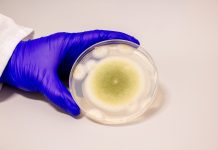
A recent study has revealed how a special enzyme helps keep leaves on apple plants healthy and long-lasting.
This enzyme, known as MdPUB23, interacts with a protein called ABI5 to delay the aging process of leaves.
Understanding this process could help improve crop yields and make plants more resistant to stress.
Leaf aging, or senescence, is a natural part of a plant’s life cycle, but it affects the plant’s overall health and productivity.
A plant hormone called abscisic acid (ABA) speeds up this aging process, especially when the plant is under stress from the environment.
However, scientists have not fully understood how ABA triggers leaf aging, so more research is needed.
Researchers from Shandong Agricultural University and Yantai Academy of Agricultural Sciences conducted a study published in Horticulture Research.
They focused on MdPUB23, an enzyme that plays a key role in how apple plants respond to ABA and manage leaf aging.
The researchers discovered that MdPUB23 interacts with the ABI5 protein and promotes its breakdown, which slows down the leaf aging process.
The team used several experiments, including yeast two-hybrid assays, pull-down assays, and bimolecular fluorescence complementation, to show that MdPUB23 physically interacts with ABI5.
They found that MdPUB23 helps break down ABI5 through a process called ubiquitin-dependent degradation.
This breakdown is essential for delaying ABA-triggered leaf aging.
They also noticed that the amount of MdPUB23 decreases during leaf aging and when treated with ABA, suggesting a feedback loop where the presence of ABA regulates the levels of MdPUB23.
Dr. Jian-Ping An, a researcher in plant molecular biology, explained, “This discovery highlights the complex ways plants balance growth and stress. By understanding how MdPUB23 controls ABI5, we can find ways to make crops more resilient and productive.”
The findings from this study have significant implications for agriculture. By manipulating the levels of MdPUB23, it might be possible to extend the lifespan of leaves, which would improve photosynthesis and increase crop yields.
This research also opens up new possibilities for developing plant varieties that can better withstand environmental stresses, contributing to more sustainable farming and food security in a changing climate.
In summary, the study provides valuable insights into how apple plants manage leaf aging through the interaction of MdPUB23 and ABI5. This knowledge could help scientists and farmers develop strategies to improve plant health and productivity, ensuring better crop performance and resilience.
Source: KSR.



